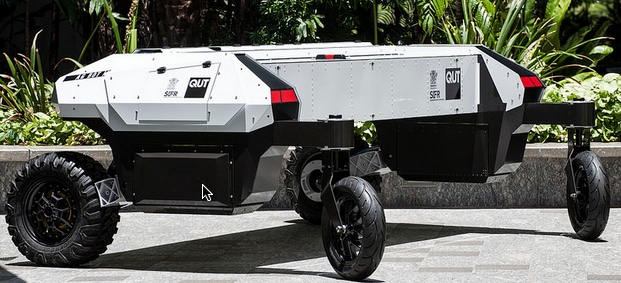Future farming to be based on robots and big data
March 9, 2015
The farm of the future will involve multiple lightweight, small, autonomous, energy-efficient machines (AgBots) operating collectively to weed, fertilize and control pest and diseases, while collecting vasts amount of data to enable better management decision making,” according to Queensland University of Technology (QUT) robotics Professor Tristan Perez.
“We are starting to see automation in agriculture for single processes such as animal and crop drone remote monitoring, robotic weed management, autonomous irrigation,” he said. “There is enormous potential for AgBots to be combined with sensor networks and drones to provide a farmer with large amounts of data, which then can be combined with mathematical models and novel statistical techniques (big data analytics) to extract key information for management decisions — not only on when to apply herbicides, pesticides and fertilizers but how much to use.”
Perez said weed and pest management in crops was a serious problem for farmers and recommended replacing large, expensive, single tractors with a team of more cost-effective robots that could weed on the spot and perform other farming operations 24 hours a day. AgBots could also be of great value within the livestock industry.
Second-generation farm robots
QUT’s new AgBot II prototype robot is equipped with cameras, sensors and software, designed to work in autonomous groups to navigate, detect and classify weeds and manage them either chemically or mechanically as well as apply fertilizer for site specific crop management. Field trials will start in June.
Perez said with the world population projected to increase from seven billion plus in 2015 to nearly nine billion by 2050, it was essential to find ways to increase yield and maintaining the status quo was no longer an option.
Researchers from nine Australian universities as well as farmers and industry representatives plan to attend the National University Network for Precision Agriculture Systems Science-Industry workshop at QUT March 10 to March 12.
